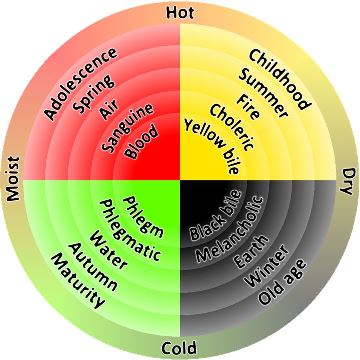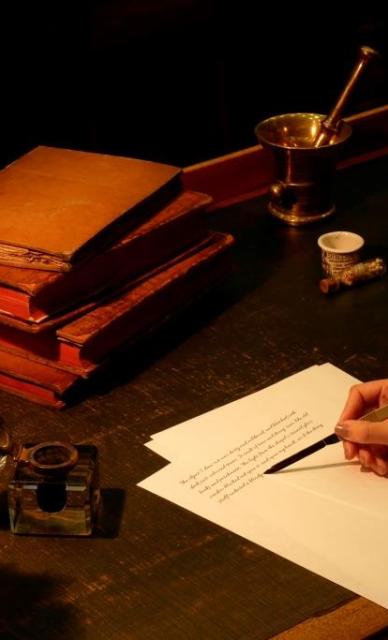Physicians' Gallery Newsletter
Updates on upcoming events, exhibitions and online stories
Empowering medical excellence, shaping healthcare futures.
The word melancholy literally means an excess of choler, or black bile.
Its origins lie within the humoural system, which dates back to at least the time of Ancient Greece and remained a significant influence on medical practice until the 1800s.
The humoural system is quite complex, as the diagram below demonstrates. Although the principles were changed and adapted over time, essentially, according to this idea, there were four humours in the body: yellow bile, black bile (also known as choler), phlegm and blood.
There were four corresponding temperaments - you could be phlegmatic, choleric, sanguine and melancholy.
These corresponded with the four elements - earth, air, fire and water.
The four seasons - Spring, Summer, Autumn and Winter.
The four ages of man - childhood, adolescence, maturity and old age.
And hot, cold, moist and dry.

So, for example, melancholy was associated with winter and old age and was cold and dry. If you were melancholy, you were expected to be stoic, reflective and philosophical.
The most desirable temperament was to be sanguine. This was associated with the spring and with adolescence. It was also associated with men - it was quite unlikely that a woman would be seen as sanguine. Those who were sanguine were thought to be outgoing, generous, artistic and indulgent.
So maintaining health was all about balancing these four humours. If you were ill that meant your humours were out of balance. How someone was treated would depend on their age, gender, geographical location and the time of year. And when you were treating someone who was sick, you weren’t usually trying to cure a specific disease, you were trying to remove the excessive humours, whether by bleeding, laxatives or vomits.
Although the principle remained the same, the treatments which resulted from this theory were dictated by the fashions of the time. So for example, the introduction of items such as coffee, cocaine, sugar and tobacco into European society led to a slew of new humoural-based medical fashions.
Humoural theory isn’t completely gone even now and it still crops up in some of the language we use today.
When you refer to someone as:
Hot under the collar
Hot headed
Their blood running cold with fear
You’re using humoural language
And there is of course still the urban myth that exposure to cold can actually give you a cold. This isn’t science, it’s humoural theory.
Strangely, although scientifically debunked long ago, humoural theory still pops up as the basis for a lot of office training questionnaires. If you’ve ever filled out one of those work questionnaires which tells you what sort of personality type you have, then you’ve probably tested your humoural temperament.

Updates on upcoming events, exhibitions and online stories